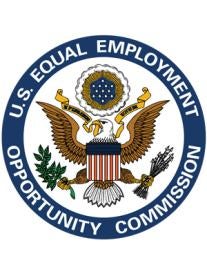This week’s stories include ...
(1) EEOC Unveils New Nationwide Policy for Position Statements
Our top story this week: The Equal Employment Opportunity Commission (EEOC) announces new nationwide disclosure rules for position statements. Retroactive to January 1, 2016, employers should expect the disclosure of their position statements to the charging party, even if the statement contains confidential information. Under the new policy, complainants have the right to request access to the statement and respond to it, but any response from the charging party will not be disclosed to the employer in turn.
(2) Second Circuit Rules That “Hispanic” Is a Race
"Hispanic-is-not-a-race" defense fails in the Second Circuit: When a Cuban-born lieutenant was hired as the new police chief of a Long Island town, a white police lieutenant filed a lawsuit claiming discrimination on the basis of race. A jury found in his favor. In trial and on appeal, the town argued that "Hispanic" is not a race, therefore there was no race discrimination. In a case of first impression, the Second Circuit ruled that “Hispanic” is a race under US Code Section 1981 and Title VII.
(3) NLRB Finds Computer Use Rule Interfered with Union Election
The National Labor Relations Board (NLRB) cracks down on employers restricting the content of personal emails sent through the employer’s email system: In 2014, the NLRB ruled that employees who have email through their employers can use that email to communicate about union-related issues. In a recent election at Blommer Chocolate Company, the union claimed that company email rules interfered with the voting process. Employees were allowed to use the company’s email system for personal emails, but were prohibited from expressing personal opinions in their emails to coworkers. The NLRB found that this rule interfered with elections and that a second election should occur. One of the questions that arises from this ruling is the issue of where the line is between what employers can prohibit - harassment, for example - and what they cannot. We’ll have more on this topic as it develops.
(4) Big Data Health Tracking Raises Privacy Concerns
Employers’ use of Big Data to track the health of workers is quickly becoming a privacy concern: According to a recent Wall Street Journal article, firms providing wellness services and insurers are now using algorithms to identify employees who may be making big health decisions. This includes workers who are trying to conceive, considering surgery, or looking for a new doctor. While only aggregated data is shared with employers, the article raised privacy concerns, because companies may be able to identify employees with medical issues based on the data. Regardless of the information available to them, it’s important for employers to ensure their employment decisions are not in any way affected by the information they receive. The Americans with Disabilities Act (ADA), Genetic Information Nondiscrimination Act (GINA), privacy, and other theories or claims might be used by creative plaintiff’s counsel if employers don’t exercise care and caution in this emerging area.





 i
i


